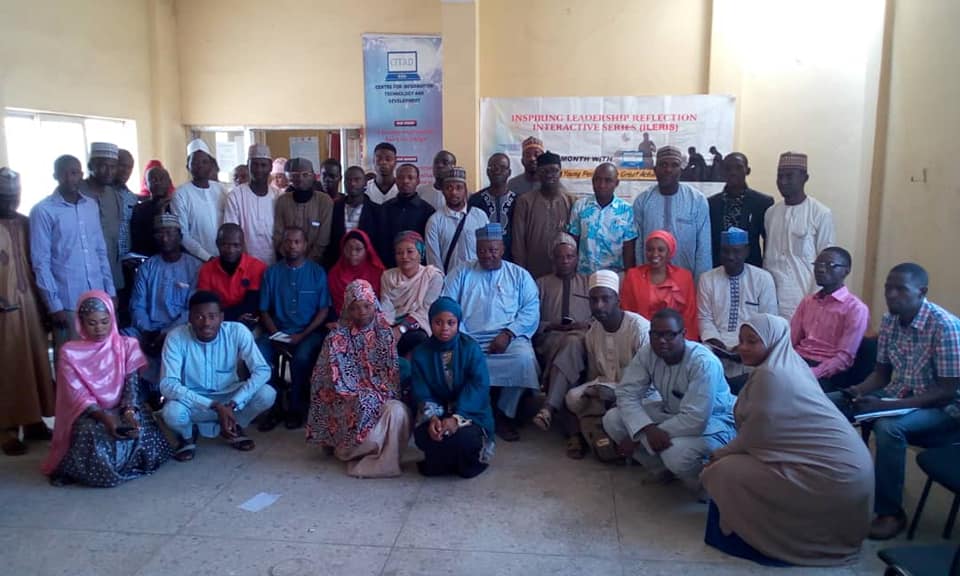
December 2018: Inspiring Leadership Reflection Interactive Series
By Maryam Ado Haruna.
The December edition of the Inspiring Leadership Reflection Interactive Series, which was held today 10th December, 2018 at CITAD’s head office, hosted Prof. Jibril Ibrahim who is a reputable academic, researcher, Activist and columnist with Daily Trust newspaper.
In his welcoming remarks, the executive director of Centre for Information Technology and Development (CITAD), Dr. Yunusa Ya’u explained that the main idea of ILERIS was to complement other youths’ development programmes, adding that the current youths’development programmes focused on skills acquisition, but ILERIS focuses on changing the mindset of the youths. He lameneted that when discussing the issue of values, nowadays, people cherish money more than knowledge, Â number of cars owned by a particular individual over his contribution to the society, and also less cherish hardworking.
The Executive Director continued to explain that it was for such reasons CITAD invites in every month, successful people to inspire young people for them to see the struggles, mistakes, challenges and how they overcome them, and  experiences in the lives of these people with the aim of changing the mindset of the youths. It was also expected of the participants to step out of the programme not only moved by what they have listened, but fully motivated and inspired with the lives of the guest.
Introducing himself to the audience, the guest, Prof. Jibril Ibrahim expressed his pleasure to in such an important programme. His opening point was on the issue of unity especially from the face of religious differences. He explained that it is more important and a way forward for Nigerians to have their focus on what united them in worship since they all worship the same God. The Prof. lamented how religious crisis has many of his neighbours and friends masscared in 1966. He described the incident as traumatic and disturbing and also described it to cut across all the nation whenever an ethnic or religious crisis occurred.
Prof. Jibril Emphasized on poor education to be the key factor resulting into failure of the Nigerian system. It is noted that education for all was initiated after the civil war during General Yakubun Gowan’s regime, to prevent reoccurrence of another civil war. Unfortunately, the policy of universal basic education was not effectively implemented nor maintained as there was rapid expansion of schools but inadequate number of teachers in those schools. The elites during that time realised the quality of education was declining and therefore, they removed their children to private schools were they could get better education. It was from then, budgets for public schools started declining. The 2010 statistics is disturbing as it revealed that 75% of children of age group are out of schools in Kano state. The situation is also similar throughout the north East and north west, and this out of school children are the once we have as Boko Haram, suicidal bombing youths and other criminal groups in Nigeria.
The Prof. also cried out how government has refused to invest sufficiently in respond to the dynamics and population in each region education. He gave an instance with the northeast and northwest Nigeria where studies showed 13.2 million of it populace do not go to school as of 2017. This is also related to the fertility rate in the two regions of 7.3. However, in Lagos the fertility rate is averagely 3 and the number of school age children is 95%. This is because the women in Lagos take into consideration that fact that they have limited resources and want to give the best to their children.
